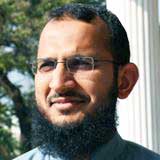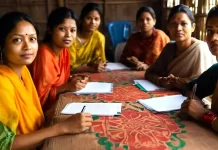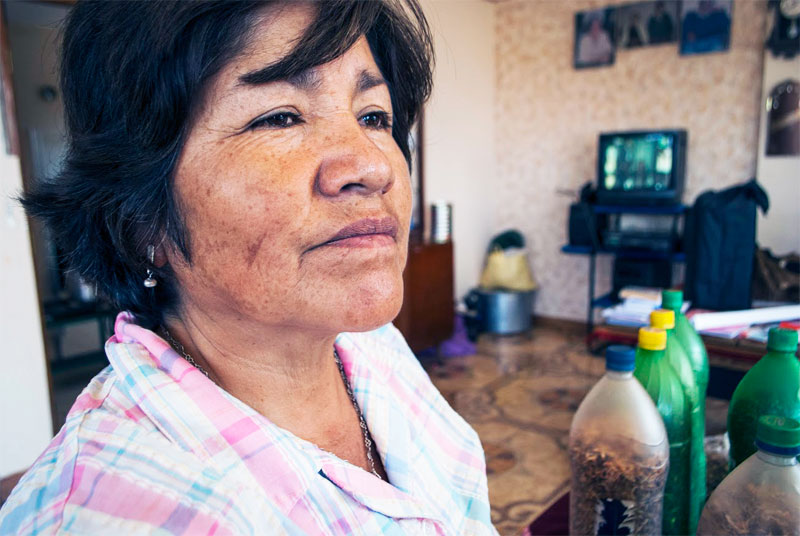 Dr Abdur Rehman Cheema
Dr Abdur Rehman Cheema
Article 25A of the constitution of Pakistan provides that the state shall provide free and compulsory education to all children of the age of five to sixteen years. However, 25 million boys and girls between the age of five and sixteen are out of school in Pakistan. Among those out of school, 55% are girls. In that sense, the country is grappling with a profound educational crisis. However, those who are in schools,too, receive poor quality education with students lacking in practical competencies such as measurement and writing grammatically correct sentences.
I had a chance to visit rural areas of district Tando Allah Yar in the Sindh province last month as part of my work assignment to plan a research study. It was then I came across the phenomenon of de facto multigrade teaching in Pakistan.
Multigrade teaching is a pedagogical method that is practiced in many parts of the world. In multigrade teaching, a teacher teaches students of different ages, abilities and grades at the same time and in the same classroom. It is in practice in developing countries such as China, India, Indonesia, Vietnam and as well as in rural areas of developed countries, such as Australia and France.
After meeting with some of the community members, I was part of the team that visited the village. While walking through the village, I happened to visit two primary schools in the village, one for boys and one for girls. For me, it was shocking to see that in both schools, children from class one to class five were taught in one class by one teacher at the same time. Both in the boys and girls school, there were two rooms in each of the schools although both were primary schools and one would expect at least five rooms for five classes. The students were dressed in all different colours as they could have. In the girls’ school, there was no teacher. An intermediate village teenage girl was teaching voluntarily in the school, again from class one to class five in one room at the same time.
In developed countries like Australia, Austria and Finland, multigrade teaching is a matter of choice. Mostly practiced in rural areas, it is a recognized pedagogical method. Teachers in these countries are specially trained and training material is provided by the government. Different from monograde teaching, teaching one group of students of same or similar age, ability and grade, multigrade teaching is more challenging and thus requires specialized training. Among others, multigrade teaching encourages children from different background to experience peer learning. It promotes cohesiveness, cooperation, inter-personal skills to socialize with elders and youngers. Since, a variety of teaching practices are used in multigrade teaching, it contributes to cognitive development of students.
See Also: Child Friendly Spaces for Rural Children in Kashmir
However, multigrade teaching remains a de facto choice for remotely located rural communities who do not have sufficient infrastructure and lack teachers. Almost 40% of primary education provided by government schools is through multigrade teaching. 74% of the schools have a multigrade set up in Sindh, followed by 50% multigrade teaching prevalence in the Baluchistan province.
Despite this widespread prevalence of multigrade teaching, there is no specialized training available for teachers in Pakistan. Multigrade teaching is different from monograde teaching. As seen, teachers with monograde teaching skills are not likely to teach a multigrade class efficiently. As a result, students will get bored and they would not like to turn up in the class. During my field visit, one of the teachers in the boys schools told that even of those students who were present in the class, many came to the class at will and irregularly. The teacher said that most village people accorded low priority to education to say the least. Unaware of the tools of multigrade teaching, such as how to engage one cluster of students in group assignments while the teacher attends to another group, students are likely to lose interest in learning.
In Pakistan’s context or in context of many other developing countries, multigrade teaching is an opportunity to educate those who would otherwise miss out. Keeping in view of the goal of education for all and also to fulfill state’s constitutional responsibility of educating the nation, multigrade teaching is a cost effective and efficient tool. It offers opportunity for educating those who lack resources to travel long distances. By studying close to home in multigrade teaching, such schooling is likely to be more acceptable to the poor parents who want their children to help them in the family’s economic activity along with education. So multigrade teaching can also help to increase the poor enrolment rate of the country.
However, in its current form in Pakistan and particularly in Sindh, multigrade teaching is a compromise on the quality of education. Except in few cases such as Aga Khan University-Institute for Educational Development Professional Centre in Chitral which has run a project named School Improvement in Multigrade Situation, there is hardly any recognition of the existence of multigrade education in the country. Since education is a provincial subject after the 18th amendment, Sindh, the second largest province of the country with regards to population, the provincial government must take steps to acknowledge presence of multigrade education in the province and arrange for specialized training of teachers.
You May Also Like:
While it might take decades for the government to provide quality monograde education to remote rural population of the country, little investment in improving the quality of multigrade education can yield significant results for the otherwise marginalized and poor communities. In addition to curb absenteeism and non-merit based recruitments and promotion of teachers, the state must invest on teachers’ training on multigrade teaching.
(Dr. Abdur Rehman Cheema is a development studies academic and practitioner based in Islamabad. He is Team Leader Research at Rural Support Programmes Network, Islamabad.)










